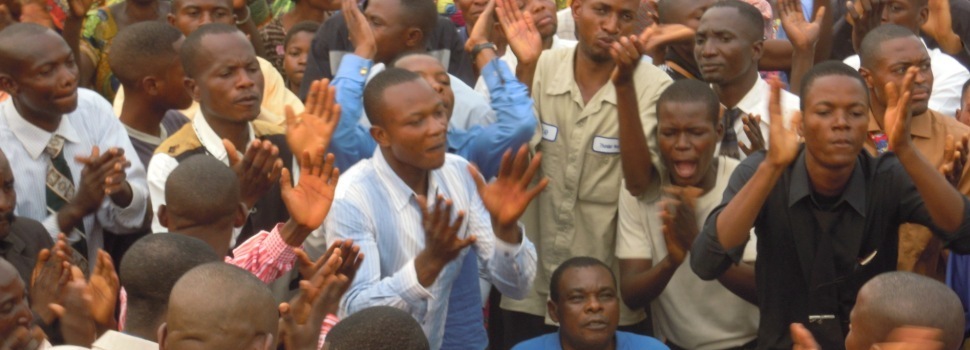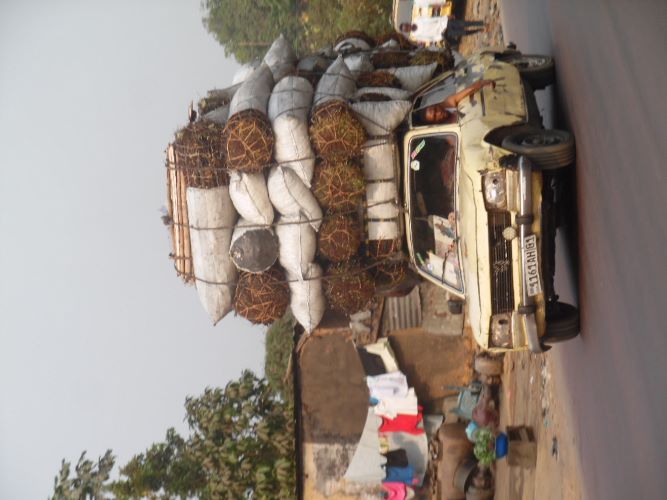WHERE THE CHURCH GROWS
A small mission organization sees big miracles
below table is the summary of the Facilite projects in the artikel
Click on the Project name to directly jump to the project
|
Nr. |
Country |
Project name: |
Project form: |
Cost total/still needed ($) |
|
1 |
Dem. Rep. Congo |
evangelism/education |
16,500 / 16,500 |
|
|
2 |
Dem. Rep. Congo |
evangelism/social activities |
304,500/304,500 |
|
|
3 |
People's Republic of Congo |
Start of our work in the People's Republic of Congo (Brazzaville) and Angola |
evangelism/education |
|
|
4 |
Togo / Benin / Burkina Faso
|
evangelism/education |
40.750 / 40.750 |
|
|
5 |
Sierra Leone |
evangelism/education
|
19,565/19,565 |
|
|
6 |
Nepal/ India/ Bangladesh |
Winning hundreds of thousands (?) Santal, in Nepal, India, Bangladesh |
mission/education |
119,575 / 119,575 |
|
7 |
Nepal / India / Bangladesh |
Winning many tens of thousands of Rajbansi in Nepal and India |
mission/education |
51,630 /51,630 |
|
8 |
Nepal / India |
mission/education |
38,000 / 38,000 |
|
|
9 |
Ivory Coast / Liberia |
Winning the tribe of Dan and related tribes (Ivory Coast and Liberia) |
mission/education |
45,650 / 45,650 |
|
10 |
Ivory Coast / Guinea |
mission/education |
35,330 / 35,330 |
|
|
11 |
Nepal
|
mission/education |
29,900 / 29,900 |
|
|
12 |
Somaliland |
social work |
59,800 / 59,800 |
|
|
13 |
Malaysia |
mission/education |
16,300 / 16,300 |
|
|
14 |
Congo |
evangelism/social activities |
21,750 / 21,750 |
|
|
15 |
Overall |
Administrative tasks, unforeseen expenses and new printed matter |
Administrative tasks |
15,760 /15,760 |
INTRODUCTION
Big increase
Sometimes it seems like everyone wants to become a Christian. Thousands upon thousands are coming to faith, or at least showing a deep interest in it. As a result, we encounter a phenomenon that sounds like a fairy tale. The growth is so fast that we can hardly keep up.
This is the counterpart of concerns about declining church attendance and the closure of church buildings in Europe and even North America. This is not a single isolated case. We see it happening in all ten countries where we work as a small missionary movement, in Asia as well as Africa. This concerns many tens of thousands of people per year and those numbers seem to be increasing every year. There is every reason to spread the Word worldwide. Too many believers are disappointed because they do not know this other side of reality. God's work continues at full speed!
Our positive experiences have to do with our choice of work areas that are open to us (1), our strategy (2) and the choice and training of good workers (3). Yet that only partly explains what is happening. God is at work in ways we could never have anticipated. There is much more need for faith, Bible and church in this world than we imagined. *1
Facilite Foundation
Who are we'? Facilite is the name of the foundation that was formed for the missionary work of Rev. Abram Krol. He began teaching at a theological training course in the Democratic Republic of Congo on Church Growth in 1997. Preachers' conferences and evangelism work were added. Then also local workers, first in Congo (1998) and a little later also in India and Nepal. Then a foundation was needed, but with a neutral name, Facilite (Latin for: make possible) because of work in 'closed countries'.
Other countries were added: Ivory Coast (2010), Liberia (2020), Guinea (2022), Angola (2023) and some countries where we will start soon: Sierra Leone, Burkina Faso, Congo-Brazzaville, Bangladesh. We are also involved in social activities in Somaliland (1998). Invitations were recently received from many other countries on four continents.
We mainly pursue three goals:
- Forming local spiritual leaders according to the teaching of Church Growth, as explained in 'Church Growth Complete', written by Abram Krol. *2
- Support this training by publishing literature.
- To begin evangelistic work in every country where we are present, especially among neglected groups and/or areas.
In addition we are engaged in: Bible distribution, social help (Pygmies, Somaliland) etc.
The Facilite Foundation works together with independent associations and foundations with similar goals in various countries.
Measures and opportunities
In the Dem. Rep. In Congo we work together with the leadership of an influential umbrella organization for all Protestant denominations (with more than 35 million people). They have asked us to participate in the formation of all their more than 100,000 pastors in the way of Church Growth. We are also in close contact with the leaders of the non-affiliated evangelical churches (approximately 6 million people). We have huge open doors in that country.
In Nepal and India we work through the lines of castes and tribes to spread the Gospel in their own circle and language. Most missionary organizations tried to approach everyone in the same way in order to reduce the differences between groups in society, but especially the groups labeled as 'lower' felt excluded. As soon as they become Christians, integration become much easier.
Our movement entered in Guinea at the invitation of some of the most important spiritual leaders, some of whom also have a major voice in politics.
Partners wanted
Of course, our small group cannot handle all this work. Even though the group of donors is growing, it is a huge task to keep up with the growth of our work financially. Unless a miracle occurs, we will have to forgo many of the great opportunities that are presenting themselves for the spread of the Gospel. However, in our view that would be a big mistake. HELP US!
We have calculated what is needed for the next three years to be able to properly respond to these enormous new opportunities. This amounts to an amount of 750,000 to 950.000 Euros (up to one million US Dollar) above what we currently receive. That is a huge amount. We are primarily looking for major donors, because we are not a professional institution with an office and salaried employees. This means we can work very cheaply, but at the same time that we are limited. *3
It is possible for potential donors of large gifts to make agreements with us about the use of their donations, as long as this does not change our strategy.
Partners can help us through their gifts and through their efforts and, above all, through their prayers.
Opportunities and challenges
It is incomprehensible to us that we find so many great opportunities. This is partly the result of our position at the center of church life and furthermore due to the quality of our lessons. Above all, God's blessing is what matters.
All amounts mentioned in the following project proposals are only global estimates.
Notes:
*1 For our mission strategy see: https://www.bramkrol.com/gemeentegroei/artikelen/243-zending-een-vernieuwende-projecten
*2 Gemeentegroei compleet (Church growth complete), Ds. Bram Krol, Hoornaar 2001; also published in French (4th edition), English (2nd edition) and Nepali (3rd edition). Can be ordered via www.bramkrol.com
*3 For the annual accounts see: https://www.bramkrol.com/bram/facilite/anbi
*4 When God's Spirit falls… , A.J. Krol, Facilite Foundation, Gorinchem 2004, (can be ordered via www.bramkrol.com )
General:
Inhabitants: 104,000,000 (Kwilu: 2.2 million inhabitants; Kwango: 2.1 million inhabitants)
Languages: French, Lingala, Kikongo, Tshiluba, Swahili
Religion: 85% Christian (50% Roman Catholic, 35% Protestant)
Number of Facilite workers: 16 (mainly volunteers)
Project form: evangelism/education
Costs: E 20,000 ($ 21,600)
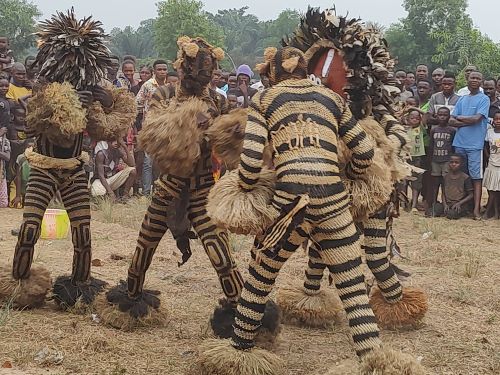
Explanation:
The provinces of Kwilu and Kwango (200 - 700 km southeast of Kinshasa) formed the last core of the resistance against the Belgian colonial power in the country. These areas were not pacified until 1930. They remained largely animistic. This concerns more than a million people, especially in the difficult-to-access parts of these provinces.
We are in contact with some pioneers who have made contacts in those remote areas in the provinces of Kwilu and Kwango. They can show thousands the way to Christ. They have entry into groups, communities and tribes that are very open to the Gospel. However, poverty in those regions is so great that some cannot afford the cost of a few liters of gasoline, let alone stay far from home for several months. However, this is necessary if large groups of people were to come to faith.
It is quite possible - with meaningful support, some training and the provision of Bibles and follow-up materials - to see perhaps 100,000 (!) people come to faith in a short time. We have the contacts, a working method and workers. As an example, I give the testimony of one preacher, who was able to baptize 2,000 new believers in seven months, seventy kilometers from the city of Bulungu!
Printed materials, Bibles and evangelists who travel around in various of those areas, and coaches to guide them, are needed. We have good contacts with all religious communities in those regions. The booklet 'When God's Spirit falls...' can serve as information about the environment and spiritual life in those areas.
>> click here to return to the project overview <<
General:
- Inhabitants: 104,000,000 (Maï-Ndombe: 1.8 million inhabitants)
- Languages: French, Lingala, Kikongo, Tshiluba, Swahili
- Religion: 85% Christian (50% Roman Catholic, 35% Protestant) 5% Kimbangist)
- Number of Facilite workers: 16 (mostly volunteers)
- Project form: evangelism/social activities
- Costs: E 280,000 (for three years) ($ 304,500)
Explanation:
Since 2003 we have been in contact with large groups of Pygmies in the Mai-Ndombe and the Equator Province. Thousands have come to faith and as a result several dozen churches have been founded. Many of them live in the areas of Oshwe, four days' journey from Kikwit where our Congolese director (Rev. Bernardin Luswa) lives. The journey takes you along impassable paths to the great Kasai River. Then a crossing with a large canoe over the swirling water. Then by motorbike over overgrown paths, through swamps and over fallen trees to Oshwe. From there we continue to the scattered villages of the Pygmies. Thousands there have never heard the name of Jesus.
The Pygmies of the Mai-Ndombe are somewhat taller than the smallest Pygmies in the far northeast of Congo (average man height 1.60 meters), but culturally the same, although they no longer live nomadically. They call themselves the Twa. They speak their own dialects, in the Mai-Ndombe this is related to Lingala.
We want to give ten forest dwellers (Pygmies and Bantus) intensive training to work with us.
Due to the enormous poverty among the Pygmies and the fact that they are severely discriminated against, social work is also urgently needed. We are thinking of a simple medical aid station and a few schools. (Pygmies are banned from schools and medical posts in the jungle and often even from churches!) That makes this project ambitious and expensive. The advantage of taking this up is that we have numerous contacts among Bantus and Pygmies. Without their active cooperation, the work we want to do is impossible.
We would like to reach the more remote villages, which are mainly Pygmies who live along the rivers. This concerns 15-25,000 unreached people.
>> click here to return to the project overview <<
General:
People's Republic of Congo:
- Inhabitants: 5,900,000
- Languages: French, Lingala, Kituba
- Religion: 80% Christian (of which 51% Roman Catholic, 35% Protestant, remainder: various sects)
- Number of Facilite workers: 0
- Project form: evangelism/education
Angola:
- Population: 34,000,000
- Languages: Portuguese, Umbundu, Chokwe, Kimbundu, Kikongo
- Religion: 53% Christian (of which 75% Roman Catholic, 25% Protestant)
- Number of Facilite workers: 0
- Project form: evangelism/education
- Costs for the start in Angola and Congo-Brazzaville: E 35,000 ($38,000)
Explanation:
We have received some urgent invitations from Congo-Brazzaville and Angola. The first contacts have been made. Travel and training are necessary to get everything started properly. For Angola there is an additional complication, namely printing of our materials in Portuguese (two booklets have already been translated). We will have to train local workers from both countries (if possible on a part-time basis) and volunteers. We also need to set up (large) preachers' conferences and circle leader training courses.
>> click here to return to the project overview <<
General:
Togo
- Inhabitants: 8,900,000
- Language: French
- Religion: 48% Christian; 33% animist; 18% Islam
- Number of Facilite workers: 0
- Project form: evangelism/education
Benin:
- Inhabitants: 13,000,000
- Language: French
- Religion: 43% Christian; 24% Islam; 17% voodoo
- Number of Facilite workers: 0
- Project form: evangelism/education
Burkina Faso:
- Inhabitants: 22,400,000
- Languages of instruction: French
- Religion: 50% Islam, 19% Christian; 31% animistic
- Number of Facilite workers: 0
- Project form: evangelism/education
- Total expenses for these three countries: E 37.500 ($ 40.750)
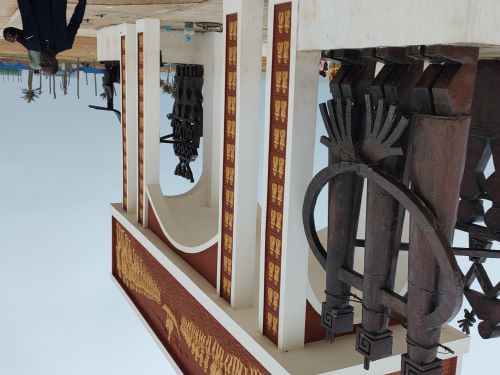
Explanation:
There are many urgent invitations waiting for us from Togo, Bénin and Burkina Faso. We have already started in Togo at the end of 2023. In Burkina Faso we already have several follow-up groups. Needed: training of leaders and input of literature. Formation of local structures and a simple form of leadership. The language is not a problem (French). The same steps as mentioned under point three also await us here.
>> click here to return to the project overview <<
General:
- Inhabitants: 8,500,000
- Languages: English and Krio
- Religion: 77% Islam; 23% Christian
- Number of Facilite workers: 0
- Project form: evangelism/education
- Expenses: E 18,000 ($ 19,565)
Explanation:
The first contacts in Sierra Leone have already been made. A number of follow-up groups have already been started by people who have followed one of our courses in Guinea or Liberia. When a mission organization wants to set up new work, it costs capital (often hundreds of thousands of Euros). We can make a good start for a relatively small amount. For this purpose, workers have to travel back and forth from Liberia and Guinea, possibly from Ivory Coast. We need to introduce literature and provide training.
>> click here to return to the project overview <<
General:
India
- Population: 1,300,000,000
- Languages: Hindi, English
- Religion: 80% Hindu; 14% Islam; 2.3% Christian (a large proportion of Hindus are actually animist)
- Number of Facilite workers: 6
- Project type: mission/education
Bangladesh:
- Population: 170,000,000
- Language: Bengali
- Religion: 95% Islam, 0.4% Christian
- Number of Facilite workers: 0
- Project type: mission/education
Nepal:
- Population: 31,300,000
- Language of instruction: Nepali
- Religion: 35% Hindu, 40% animist, 4.5% Islam, 4.5% Christian, 9% Buddhist
- Number of Facilite workers: 25
- Project form: mission/education
- Total expenses for these three countries: E 110,000 ($ 119,575)
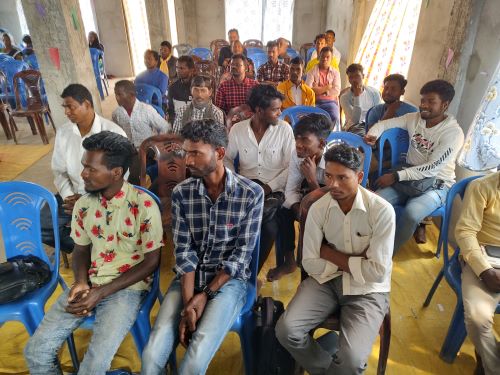
Explanation:
The Santal population numbers eight to ten million people. The vast majority of them live in four states of India, with also a large group in Bangladesh and a small number in Nepal. They speak their own language. Racist Hinduism severely discriminates against them because of their dark skin color. Most Santali follow Hinduism, but about a third follow their own original religion (animist).
In Nepal we see a strong movement towards Christ among the 53,000 Santali. Already a third of them have become Christians in recent years. Our approach to follow-up works very well among them. We are already working in this way in Bihar (India) and this will soon also happen in the state of Jarkhand with more than three million Santali. We hope that West Bengal, Orissa and Bangladesh will soon follow suit. This population group is open to an approach by their own tribe members, precisely because they have to rely on each other due to discrimination. By using their language they can work fairly freely, despite the heavy repression in India.
We have trained a number of workers from Nepal and Bihar. The follow-up materials (an follow-up Bible study booklet and a manual for the group leaders) have been translated and printed in Santali. Given the size of the project, at least one full-time worker will be needed quickly. Furthermore, we cannot avoid some social assistance, especially with the aim of helping people earn their own income. Many long journeys are required to provide training and maintain contacts everywhere. This can be a very large project, with many growth opportunities and also: many responsibilities.
>> click here to return to the project overview <<
General:
India
- Population: 1,300,000,000
- Languages: Hindi, English
- Religion: 80% Hindu; 14% Islam; 2.3% Christian (a large proportion of Hindus are actually animist)
- Number of Facilite workers: 6
- Project type: mission/education
Bangladesh:
- Population: 170,000,000
- Language: Bengali
- Religion: 95% Islam, 0.4% Christian
- Number of Facilite workers: 0
- Project type: mission/education
Nepal:
- Inhabitants: 31,300,000
- Language of instruction: Nepali
- Religion: 35% Hindu, 40% animist, 4.5% Islam, 4.5% Christian, 9% Buddhist
- Number of Facilite workers:
- Project form: mission/education
- Total expenses for these three countries: E 47,500 ($ 51,630)
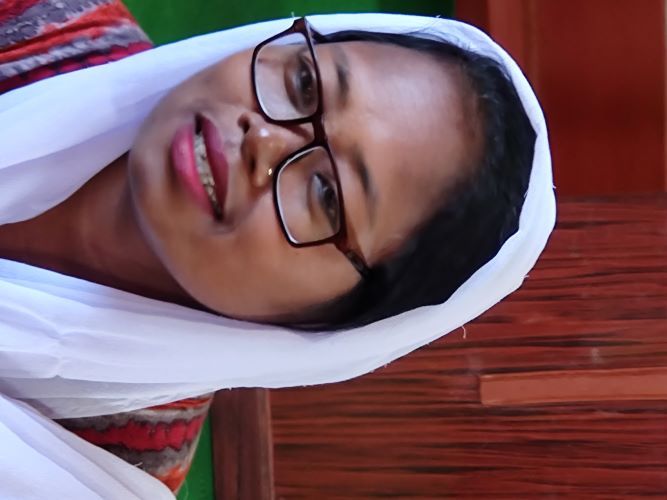
Explanation:
The Rajbansi population numbers eleven to twelve million people. They live in eastern Nepal (125,000) and northeastern India, mainly in West Bengal and Assam and to lesser numbers also in northern Bangladesh. They are predominantly Hindu. In Nepal we see a fairly strong need among them to become Christians. This group has its own language, but most speak Nepali, Bengali or Assamese.
We have found a strong collaborator in Jitni, who has already founded more than fifty follow-up groups among Rajbansis in Nepal. She has also done some work in India and her native Bangladesh. We want to build a bigger movement among this tribe, which is very committed to its own cultural practices. We need some workers from this population group to be able to reach them intensively.
This means the need for publication of our materials in Bengali and Assamese. This group can serve excellently as a bridge to the Bengali and Assamese population.
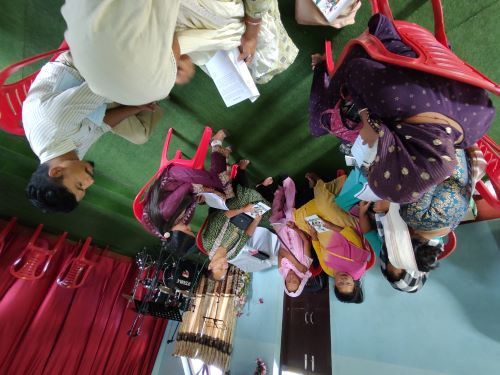
>> click here to return to the project overview <<
General:
India
- Population: 1,300,000,000
- Language: Hindi, English
- Religion: 80% Hindu; 14% Islam; 2.3% Christian (a large proportion of Hindus are actually animist)
- Number of Facilite workers: 6
- Project type: mission/education
Nepal
- Inhabitants: 31,300,000
- Language of instruction: Nepali
- Religion: 35% Hindu, 40% animist, 4.5% Islam, 4.5% Christian, 9% Buddhist
- Number of Facilite workers: 25
- Project type: mission/education
- Total expenses for these countries: E 35,000 ($38,000)
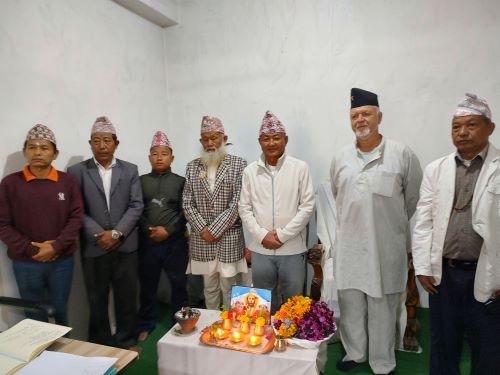
Explanation:
Since 2003, Abram Krol has had contacts in a group of tribes (mainly Limboo and Rai) that bear the collective name Kirati. They belong to the Tibeto-Burmese language group, although most speak Nepali. This concerns more than two million people.
It is remarkable that the Kirati are not only a people group, but also a religion that has traditionally been monotheistic. However, others follow the ancient Tibetan Bon religion and still others consider themselves Hindu. About a million monotheists follow guru Atmananda, although they are strongly influenced by Hinduism. The other movements each have approximately 500,000 people.
Due to the intensive contacts since 2003, a lot of mutual trust has grown. Many Kirati are open to faith in Christ, but they are afraid of losing their independence and individuality. They once formed a large kingdom that existed for more than 1,000 years (Limboowan) and was only included as the last part of present-day Nepal, at the end of the sixteenth century.
At the end of 2022, Abram Krol was able to pass on the Gospel to the annual mass meeting of the Kirati. This speech was printed and distributed among the Kirati. Many now feel they are faced with a big choice. We want to guide this process, taking into account the Kirati's strong desire for independence and their fear of domination by others. We need some Kirati workers who also speak the Limboo language.
>> click here to return to the project overview <<
General:
- Population: 31,000,000
- Language: French
- Religion: 42% Islam; 40% Christian; 14% animist
- Number of Facilite workers: 28
- Project type: mission/education
- Expenses: E 42,000 ($ 45,650)
Explanation:
Since 2012, we have been in close contact with the Dan tribe, which mainly lives in Ivory Coast (1.5 million people). It also has more than 250,000 people in Liberia and 60,000 in Guinea. There are also some related tribes that speak a dialect of the Yacouba language, mainly the Touba (Ivory Coast). All together this amounts to more than two million people.
After Abram Krol discovered that it is likely that the tribe of Dan in West Africa has its roots in the histories mentioned in the Bible and that its beliefs show a great degree of similarity with the teachings of the Books of Moses, he has published a brochure about it written (Le secret du peuple Dan). This knowledge was integrated into our evangelization work. This resulted in thousands of people wanting to follow Christ. The churches flourished.
The new believers became evangelists. Evangelists became circle leaders. Circle leaders became coaches and missionaries. Groups go out from Ivory Coast to evangelize in the wider area, including across the border with Liberia, and to train new small group leaders.
About 4,000 new believers participate in follow-up Bible studies in the Dan tribal area (in the midwest of Ivory Coast). Groups are now also being set up from their area among the strongly animistic neighboring tribe of the Guéré. The number of Christians among the Touba (150,000) is also still very small. They have a similar culture and language. We also want to start among them.
We want to expand and further develop existing teams (with 21 co-workers). In addition, they have put together mission teams for remote areas, which we would like to deploy. We need to do a better job in their capital (Man), one of the largest cities in Ivory Coast, and form a team for the Touba. We have to use their own language, because most of them hardly speak French; many are also illiterate. That requires an additional financial effort.
>> click here to return to the project overview <<
General:
Ivory Coast
- Population: 31,000,000
- Language: French
- Religion: 42% Islam; 40% Christian; 14% animist
- Number of Facilite workers: 28
- Project type: mission/education
Guinea
- Population: 14,000,000
- Language: French, Pular, Madingo, Susu
- Religion: 87% Islam, 9% animist,; 4% Christian
- Number of Facilite workers: 1
- Project type: mission/education
- Costs for both countries: E 32,500 ($ 35,330)
Explanation:
Our emphasis on evangelism through conversations (in which we ask a lot of questions) works like a winch among Muslims. What we strive for is a conversation in which questions about eternity and inner security are discussed. That intrigues people. Many are then suddenly faced with a choice and see the aspect of salvation, which is virtually absent in Islam.
In both Ivory Coast and Guinea we are in close contact with people who have seen thousands of Muslims come to faith in Christ. (This is also the case in the Congolese province of Maniema). In collaboration with them and with others who work among Muslims (such as the Al Massira Foundation and Open Doors), we want to try to refine our methods and apply them more effectively. We also want to develop adapted materials for this target group.
>> click here to return to the project overview <<
General:
Nepal
- Inhabitants: 31,300,000
- Language of instruction: Nepali
- Religion: 35% Hindu, 40% animist, 4.5% Islam, 4.5% Christian, 9% Buddhist
- Number of Facilite workers: 25
- Project type: mission/education
- Total expenses for these countries: E 27,500 ($ 29,900)
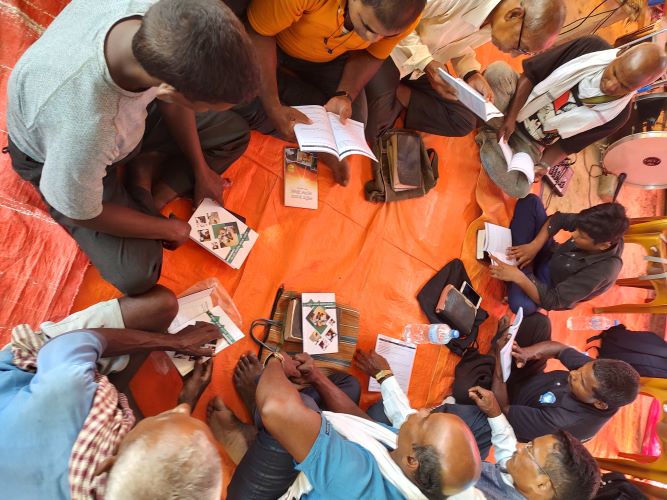
Explanation:
We have found open doors among many minorities. For example, we are in contact with several groups and tribes that show great openness. First, the Dhimal tribe (35,000) from eastern Nepal. A large proportion of them are already Christians, perhaps 40%. Secondly, there is the basket maker caste (Majhi), which also has its own language, consisting of several tens of thousands of people. We have now one worker from among them. Most Majhi live in Ramechhap (central/eastern Nepal). Third, the Eastern Chowdharis. In the west and center of the country there are many Christians among the Chowdharis (especially in Chittwan), but the eastern part of this tribe (80,000) has fought tooth and nail against outside influences. It is even possible that a convert may have to pay for this with death.
We have had access to them again since 2021. Dozens participate in Bible studies, but do not yet dare to take the step to leave their religion. A massive transition appears to be in the making. The Eastern Chowdhari mainly live in the Sunsari and Saptari areas (Eastern Nepal).
While we are trying to win over whole tribes along cultural and ethnological lines, the work among other groups in Nepal - as well as in neighboring regions north and south of that country - continues 'as usual', for example in Bhojpur (northeast) and Bardiya (west).
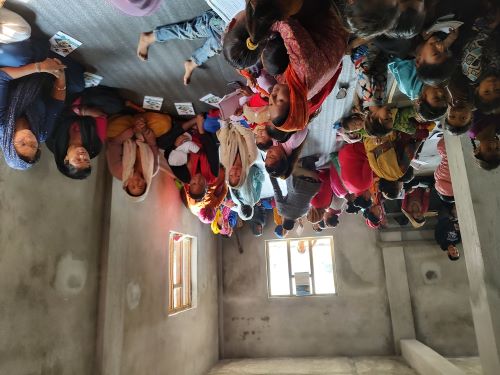
>> click here to return to the project overview <<
General:
- Inhabitants: 4,000,000
- Language: Somali
- Religion: 99.5% Islam (Less than 25 Christians)
- Number of Facilite workers: 0
- Project form: social work
- Expenses: E 55,000 ($ 59,800)
Explanation:
In Somaliland, the northern part of Somalia that has been independent since 1991 (over four million inhabitants), we are in close touch with the Doses of Hope Foundation, which has provided a lot of aid since 1998. Originating from 'nothing', this work has grown into the largest aid institution of Somaliland origin. Mrs Fadumo Alin emerged as a 'Mother Teresa' of her own country. Unfortunately, the country is politically quite unstable). We have helped Fadumo several times. For example, she founded the only school for the blind in Somalia/Somaliland.
New projects - in the areas of village development and agricultural renewal - are in the pipeline. If money were to become available, I would like to give this a push.
In addition to the above projects, there is also contact with the discriminated tribe of the Yibirs, who claim to be descended from the Hebrews and are related to the Falashas (originally Ethiopia, now Israel). We also want to expand those contacts. In this more than 99% Muslim country we have unprecedented opportunities, in accordance with our objectives.
>> click here to return to the project overview <<
General:
- Population: 34,000,000
- Language: Malay, English
- Religion: 64% Islam; 19% Buddhist; 9% Christian; 6% Hindu
- Number of Facilite workers: 0
- Project type: mission/education
- Expenses: E 15,000 ($ 16,300)
Explanation:
Through our director in Nepal we have contacts in Malaysia, where more than 300,000 Nepalis are working. Among them, evangelistic work is done by the largest denomination, the Methodist Church of Malaysia. The largest group of their believers are Tamils, who once came over from India as plantation workers. There is a request from them for a ministers' conference on Church Growth. At the same time, we can train evangelists to lead follow-up groups among Nepalese. In that country, many Nepalese become Christians.
There will soon be a need for translation of our materials into Malay or Tamil, or possibly both.
>> click here to return to the project overview <<
General:
- Inhabitants: 104,000,000 (Maï-Ndombe: 1.8 million inhabitants)
- Languages: French, Lingala, Kikongo, Tshiluba, Swahili
- Religion: 85% Christian (50% Roman Catholic, 35% Protestant) 5% Kimbangist)
- Number of Facilite workers: 16 (mostly volunteers)
- Project form: evangelism/social activities
- Costs: E 20,000 ($ 21,750)
There are new invitations to organize courses and conferences in several major cities in Eastern Congo, especially the metropolis of Goma. Eastern Congo is ravaged by numerous militant groups (who occupy mines, which makes them profitable) and many people are killed. The places that invite us are well secured. There is an enormous need for the training we have to offer. We already have contacts in other parts of the country where Swahili is spoken (Kisangani, Kindu, Lubumbashi). Goma in particular is the gateway to East Africa. We would like to encourage the troubled population of that area, although the security situation does not yet allow this.
This means that we have to make several internal flights (Kinshasa - Goma). Air travel in Congo is very expensive. Staying in Goma is also expensive. We will have to produce materials in the Congolese dialect of Swahili (brochures and follow-up materials) and appoint workers.
>> click here to return to the project overview <<
In the Netherlands, we aim to broaden the board, collaborate with partners, improve office work and the relationship with donors. This means a number of smaller expenses, especially for travel costs and postage (estimated at 1,500 Euros or: $1,630).
It is also necessary that Abram Krol and other workers can respond to questions and opportunities that arise. This requires some financial scope. Some new leaflets, brochures and books are also needed; estimated at 8,500 Euros ($ 9,250) for 2024. We especially want to publish a new book about the municipality in French, English, Hindi and other languages. This is not included in the aforementioned projects.
Costs approximately E 14,500 ($ 15,760)
TOTAL of all proposed projects: E 789,500 (= USD 858,155)
Please note, this is the additional amount we need (beyond our 'normal' income) to expand or tackle the projects mentioned.
We realize that money is not our God nor the solution to our worries. Yet progress in our work is unthinkable without the necessary money.
No matter if we receive enough money or not, we are trying to take advantage of the God-given possibilities. However, together we can do much more, because of the enormous opportunities that present themselves to us!
>> click here to return to the project overview <<
FINAL WORD
Expenses
We try to do as much work as possible with as little cost as possible. It is actually incomprehensible that in Congo, for example - where we mainly worked in the last predominantly animist regions - we experienced that between 100,000 and 200,000 people wanted to follow Christ. The number of our workers remained small. Our annual costs remained lower than the costs of sending one professional missionary from Western Europe elsewhere. But we work with approximately 75 co-workers, mainly volunteers!
Continuity
Is this work in the hands of mainly one person? That is not the case. Abram Krol has been able to lay the foundation for this work, but the work is almost entirely done by the people he has trained in many countries. If he is no longer able to make an active contribution, the work will continue as usual. The board of the Facilite Foundation in the Netherlands can then maintain contact with the various workers and their countries. Money given for this work simply arrives on site and the projects continue.
New developments
There are three major new developments that can be incorporated into our current work. 1. In addition to the already extensive distribution of City Bibles (New Testaments) in French and Lingala for Congo, an even larger distribution is underway. City Bibles has planned to supply us with more than 100,000 City Bibles plus several thousand complete Bibles. 2. The printer of 'our' children's Bibles in Egypt has arranged for us to receive 20,000 French children's Bibles for children aged 8 - 12 from the Josh McDowell Foundation, to be divided equally between Ivory Coast and Congo. 3. More than 50,000 people participated in the follow-up method we set up at the beginning of 2024, most of them new believers. Its growth seems to be accelerating. *3
Excluding
There are also many other projects underway, the most notable of which are the start of our work in France and the printing and distribution of a children's Bible in the Baoulé language spoken in central Ivory Coast by more than three million people. This is an expensive project (more than 80,000 Euros e.g. $ 87.000), for which we are seeking contributions through other means. Furthermore, the list of new challenges will be regularly supplemented by what happens in our work.
Abram Krol
March 2024
